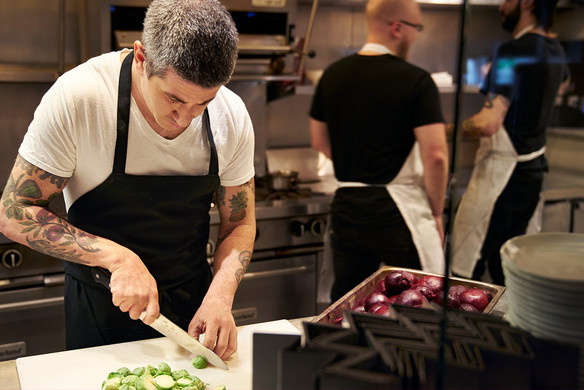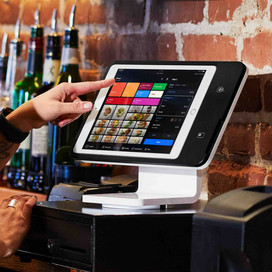Table of contents
Food service positions account for five of the 10 lowest-paying jobs in the country, according to Glassdoor’s Local Pay Report.
The report, which details growth of wages across metros and job types, listed barista as the job with the lowest median base pay ($24,493 a year), followed by cashier ($28,042 a year) and restaurant cook ($28,722 a year) in the second and third spots. Bartender ($31,860 a year) and server ($33,355 a year) come in at nine and 10.
In some cases, this may put food service workers close to the poverty line on only their base pay. But many of these workers often make tips (which Glassdoor does not take into account).
A study by PayScale found that tips can account for an average 25 percent of restaurant employees’ salaries (bartenders, servers, chefs, and cooks). Some roles take home over 60 percent of their wages from tips.
According to Glassdoor’s report, some of these jobs have actually seen a small increase in median base wages: Cashiers earn 3.9 percent higher wages than last year; baristas earn 3.4 percent more; restaurant cooks earn 1.5 percent more; and servers earn 1.3 percent more. Only bartenders’ median base pay saw a decrease (–0.6 percent year over year).
Glassdoor attributes the growth in some of these service roles to the overall job market. Because there are fewer people competing for jobs, good candidates are harder to find, and employers are offering higher pay to attract them.
What does all this mean for you, a restaurant owner?
In a competitive job seeker’s market, pay does matter. Every employer needs to at least pay minimum wage (at the federal or state level, whichever is more). But when candidates have their choice of jobs, you may need to up your offer.
As a business owner, though, raising the pay across the board is not always an affordable option. And even if it is, sometime it’s things other than pay — like perks — that motivate your employees and show them you value them.
Here are some things you can start doing to help land new employees and keep the ones you have happy:
Acknowledge accomplishments.
An easy way to keep your staff motivated and happy is simply to acknowledge their contribution. People love to hear they are doing a good job. Programs such as Employee of the Month can help take that recognition to the next level, particularly if the award has a bonus or extra time off attached to it.
Promote learning.
Investing in your team’s professional skills is a win-win. It helps your staff advance their careers and your business provide better service. If you formalize skill workshops and training or are willing to invest in classes for your employees, you should promote those in the hiring process.
Keep everyone well fed.
Since you are a restaurant, this next one is easy: Feed your employees while they are working. Meals help your team stay motivated and happy, not hangry. (Just remember that there are some tax rules regarding meals, so talk to a professional about how to handle that.)
Make work collaborative.
Giving your team the opportunity to voice opinions on important decisions and scheduling also helps keep morale high (and can be a selling point for candidates). Give team members a chance to work collaboratively on their schedules to help them feel ownership of their work. (The best way to do this is with a scheduling tool.)
Make work fun.
Most importantly, don’t forget to let your team have some fun. Try offering a break room with snacks and a TV. If you want to step it up a notch, consider dedicating time for team-building activities and offsites. You can also put some fun into work hours: Have a night at the restaurant when workers dress up or all proceedings from the meals sold are donated to a charity.
![]()












